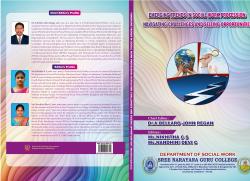Disconnected Minds: The Impact of Nomophobia on Youth Mental Health
Abstract
As smartphones dominate daily life, youth face a growing challenge called Nomophobia, the fear of being without a mobile phone. This phenomenon significantly impacts mental health, affecting anxiety levels, sleep quality, cognitive focus, and body image. The study explores the causes of nomophobia, such as social media dependency, academic pressures, and peer influence, alongside its psychological and behavioural consequences. It also examines interventions like promoting digital well-being, fostering offline connections, and supporting mental health. Design of the study: A descriptive research design was adopted. Sample: Data was collected from 60 youth respondents. Method of sampling: The purposive, non-probability sampling technique was used. The study revealed that 30% of respondents reported a high impact of nomophobia on their mental health, 37% reported a moderate impact, and 33% reported a low impact.









